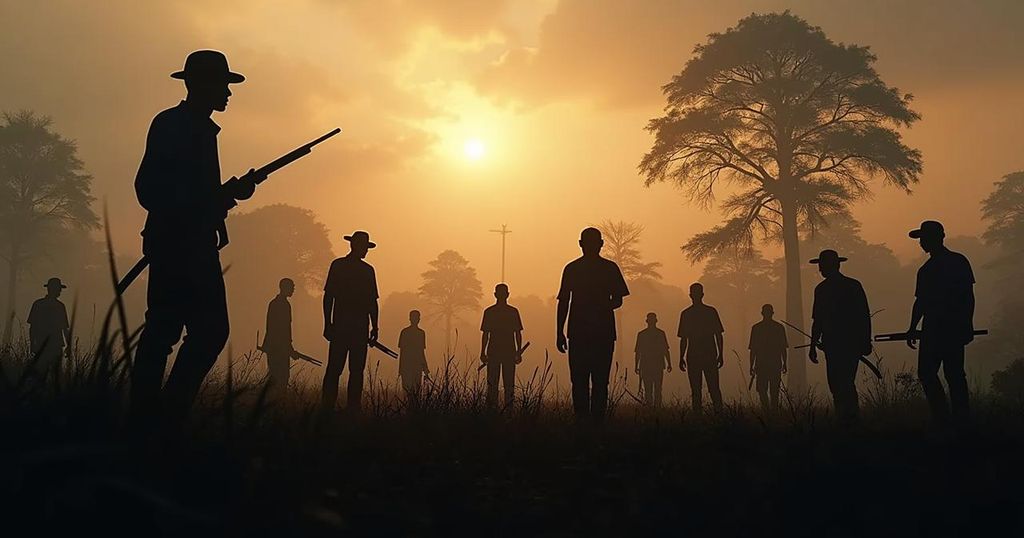The human rights situation in the Democratic Republic of Congo is deteriorating amid escalating violence, particularly in the east, with significant concerns about armed groups, sexual violence, and the impact on civilians. U.N. High Commissioner for Human Rights Volker Türk has called for increased international attention and intervention. The DRC government has responded by blaming external actors, particularly Rwanda, for exacerbating the conflicts and demanding their withdrawal.
Human rights experts have raised alarms regarding a further deterioration in the human rights conditions of the Democratic Republic of Congo (DRC), a nation long afflicted by violence and abuse. During a session at the United Nations Human Rights Council in Geneva, U.N. High Commissioner for Human Rights Volker Türk underscored the urgent need for global attention towards the suffering of Congolese civilians. He attributed the deteriorating situation to a volatile mixture of escalating violence, external interests, exploitative businesses, and a frail rule of law. High Commissioner Türk reported a rising number of victims of human rights violations, predominantly attributed to armed groups operating in the eastern provinces, with a particular focus on the grave impact of their operations on civilians and critical infrastructure such as schools and hospitals. He noted a concerning rise in sexual violence, with many women and girls subjected to horrific abuses, including sexual slavery and murder following assault. Furthermore, he cited ongoing human rights violations perpetrated by defense and security forces during operations against armed groups, alongside hate speech and discriminatory rhetoric that exacerbate political tensions across the nation. In response to these assertions, DRC’s Minister of Human Rights, Chantal Shambu Mwavita, highlighted the government’s progress despite the ongoing conflict in the east. She placed significant blame on external parties, particularly Rwanda, for supporting armed groups destabilizing the region, and called for the imposition of targeted sanctions. She linked the ongoing violence to the exploitation of DRC’s rich natural resources by external forces, demanding the immediate withdrawal of Rwandan troops from Congolese soil. Regions such as North Kivu continue to be plagued by persistent violence as armed factions vie for control of valuable resources. Rwanda has publicly refuted allegations of backing the M23 rebel group, with its officials emphasizing a commitment to dialogue rather than military confrontation. Meanwhile, tensions remain high regarding the future role of U.N. peacekeeping forces in the DRC, as uncertainty lingers over their potential withdrawal amid ongoing security challenges. As the humanitarian situation escalates, characterized by over seven million internally displaced individuals and an acute food crisis affecting nearly 26 million people, the U.N. remains focused on protecting human rights and promoting stability through cooperative security efforts. High Commissioner Türk’s remarks were aimed at mobilizing international support to halt the ongoing violence that continues to claim lives and displace communities across the DRC.
The Democratic Republic of Congo (DRC) has faced a prolonged crisis regarding human rights, characterized by armed conflict, sexual violence, and widespread abuses perpetuated by both assorted armed groups and security forces. The current situation has seen increasing attention from international organizations, particularly the United Nations, which advocates for the protection of civilians caught in the violence and seeks to address the myriad factors contributing to the region’s instability, including illegal resource exploitation and geopolitical tensions, particularly involving neighboring countries like Rwanda. This backdrop informs the experts’ views and the DRC government’s responses to the severe humanitarian crisis that is ongoing.
The human rights situation in the Democratic Republic of Congo is increasingly concerning, with armed conflicts and violations against civilians, particularly women and children, on the rise. High Commissioner Volker Türk has called for international attention and intervention to halt the violence and prevent further suffering of Congolese civilians. Despite the DRC government’s claims of progress, external factors and internal power struggles continue to complicate the humanitarian landscape, necessitating continued scrutiny and action from the international community to bring resolution and peace to the region.
Original Source: www.voanews.com






